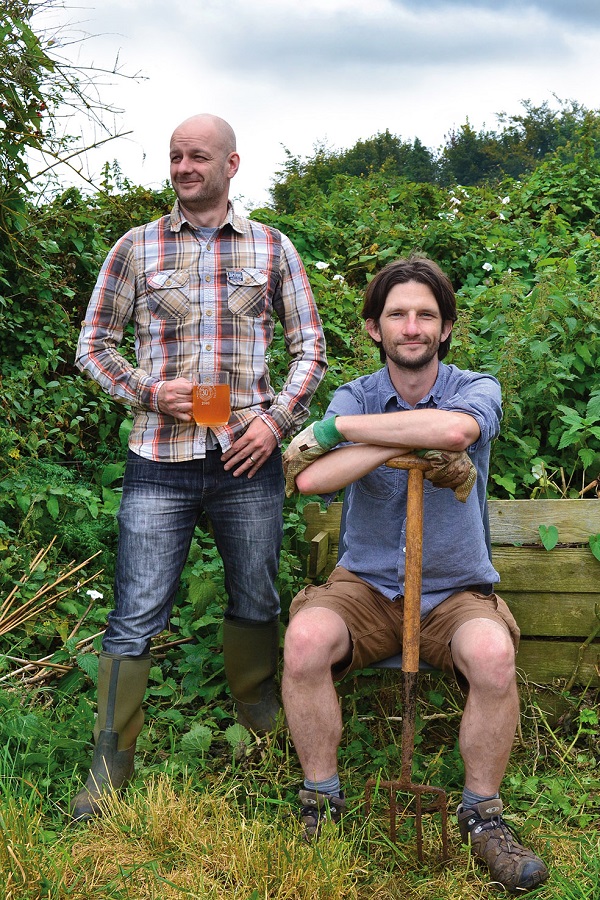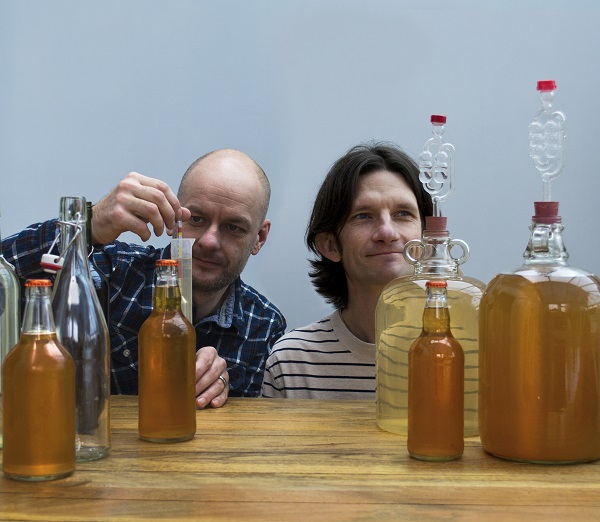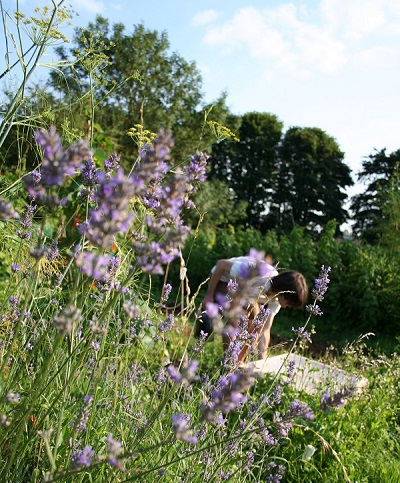
Gardening is thirsty work! So who better to interview than the guys from Two Thirsty Gardeners? Nick and Rich have been gardening since a very young age and have been making their own cider since 2008. Since then, they have gained an allotment and have continued to turn the fruits of their labour into alcoholic drinks, to the point they even have a book out called 'Brew it Yourself'.
We were fortunate enough to interview Nick about all things gardening and brewing related, from different crops you can make alcohol from, to the importance of practising organic gardening methods. Check out the interview below!
Our interview with Two Thirsty Gardeners
1. From your website, it says that you turn some of your crops into alcohol. How many different crops have you done this with?
So many I’m not sure I could list them all! We make cider from apples; we flavour beer with home grown hops, coriander seeds, chicory roots, nettles, dandelions and more; we infuse fruits, herbs and flowers to make liqueurs and bitter drinks, and we make wine from just about anything from rhubarb to parsnips.
2. When did you first find an interest in turning crops into alcohol?
We both grew up with families who followed ‘the good life’ model of growing their own produce and making their own booze. We started with cider-making over ten years ago.

3. What have you found the easiest crop to grow to be?
Rhubarb. Once established it keeps coming back for more, no matter how much we neglect it.
4. Do you have any tips for people looking at taking on an allotment?
Don’t try to do everything all at once. Your first plot is most likely going to be a bit riddled with weeds (ours was a huge mess) so pick a small area to cultivate first before steadily expanding your growing area.
5. Do you have any tips for seasonal gardening? What would you recommend planting now for a summer harvest?
If you’re growing veg then the best seasonal advice of when to grow comes on the seed packets. And don’t worry about failures, there’s always something that can take its place. Right now I’m sowing beans. They’re easy to grow, once the cold weather is finally out of the way, and some varieties grow fairly quickly. Many French beans tend to be particularly reliable and if you sow regularly you’ll get a constant supply of veg right through to the end of Autumn.
6. Is there anything you can plant over winter and expect to see a success from? Do you have any tips for planting over winter?
Winter is the best time to plant most fruit trees and bushes – particularly popular for our booze making activities. Always plant the roots in a large hole – at least twice the size of the root ball – and fill with the appropriate soil or compost before firming in place. Trees will benefit from staking to protect them from strong winter winds.
7. How important do you think it is that more people become involved in growing their own food and becoming more self-sufficient?
The more we can grow ourselves the better it is for the environment and our own diets. And witnessing the journey from seed to plate is extremely rewarding.
8. Do you have any advice for people who are short on time for quick-fixes to their garden?
Find plants that grow well in your garden (trial and error is the best method) and aim for ones that will give you a harvest year after year. The aforementioned rhubarb and fruit fit into this category but equally reliable and easy are herbs, Jerusalem artichokes, sorrel, and many more…

9. Everyone who gardens experiences some type of disappointment with their crops. How have you overcome disappointment when you have been faced with it?
We don’t bust a gut trying to grow the perfect veg, so if something doesn’t work we just shrug our shoulders and move on to the next thing. Getting too precious about the outcome can take away a lot of the fun.
10. How important do you think practising organic gardening methods are when growing your own food?
Vitally important. It’s our responsibility to look after the land and, in return, we’ll get tastier food at the end of it. Sometimes organic gardening means smaller yields or less perfect looking produce, but rarely by much and the all round benefits outweigh any shortfall in harvests.
If you want to find out more about Two Thirsty Gardeners, head over to their website




